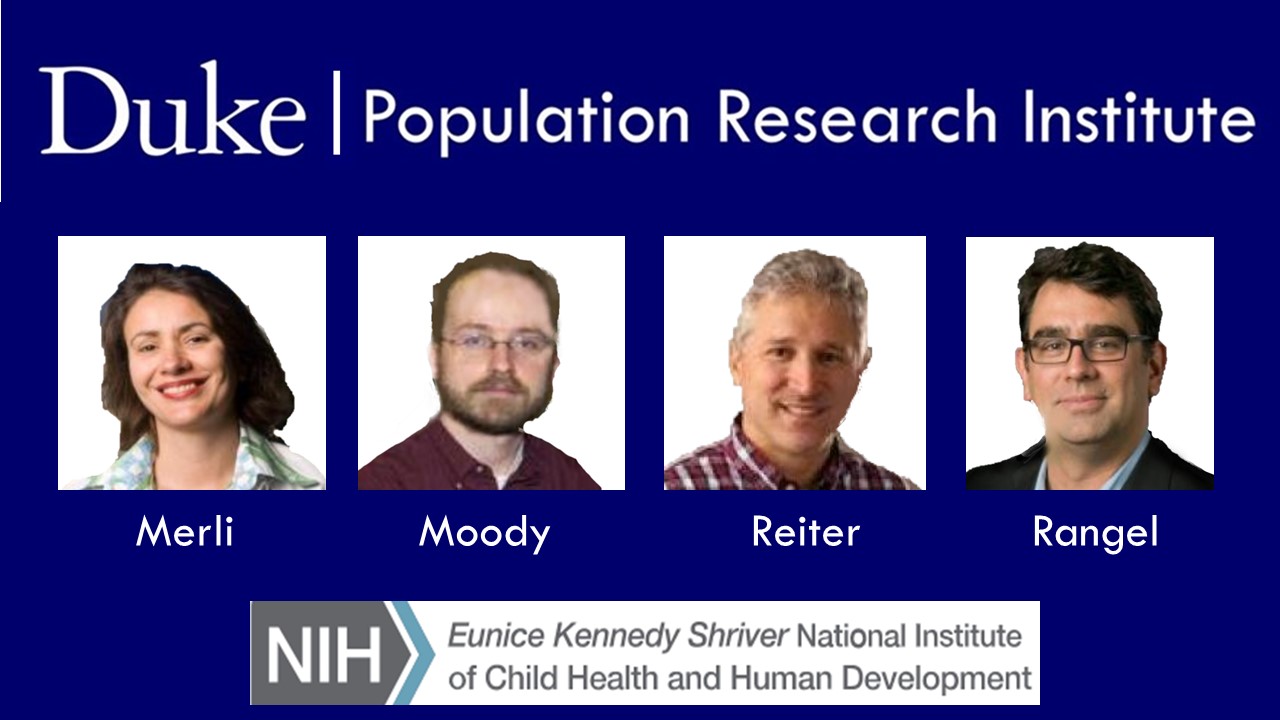M. Giovanna Merli, Professor in the Sanford School of Public Policy, has been awarded a five year P2C Center Grant funded by the Population Dynamics Branch of the Eunice Kennedy Shriver National Institute of Child Health and Human Development (NICHD), securing ongoing support for the Duke Population Research Center (DPRC). In the ten years since its first NICHD award in 2009, DPRC has grown into a vibrant, interdisciplinary research organization bringing together scientists from the social and behavioral sciences and the biological, health, and statistical sciences at Duke. The Center now has a network of population scientists whose interests encompass health and well-being over the life course and extend to primate species as well as humans, or who use social network analysis to model health, human development, and demographic outcomes.
As the Director of DPRC, Merli is joined by James Moody, Robert O. Keohane Professor of Sociology and DPRC Development Core Director, and Jerome Reiter, Professor of Statistical Science and Bass Fellow and Marcos Rangel, Associate Professor in the Sanford School of Public Policy (as of July 1, 2020), who share leadership for the Center’s Scientific Core.
The Center’s s impact is greatest in two primary research areas: (1) Foundations of Lifelong Health, furthering research in the study of early life biological, developmental and environmental (including social, economic, policy) processes responsible for lifelong health and wellbeing and (2) Interconnected Social Systems and Population Health, furthering research that leverages social connectivity to model demographic, developmental and health outcomes and to organize data collection.
In pursuit of these questions, DPRC facilitates and promotes (a) longitudinal data collections that follow cohorts from childhood and reach across generations; (b) innovative data collection that relies on social connectivity to recruit rare and hidden population samples or to map complete population networks; (c) the utilization of linked administrative data that lengthen, broaden and deepen the view of life course health and human development processes; and (d) the development of new tools and approaches for “big” population and health science.
Merli notes, “The success of our application is due to the brilliant, productive group of scholars that make up the membership of DPRC. Our very successful application was a collective effort.” Efforts are already underway though a new RFA for pilot projects related to the Center’s primary research areas. This call also includes rapid COVID-19 related pilots to respond flexibly and quickly to research needs related to the crisis and within the scope of the Center’s priority areas.
